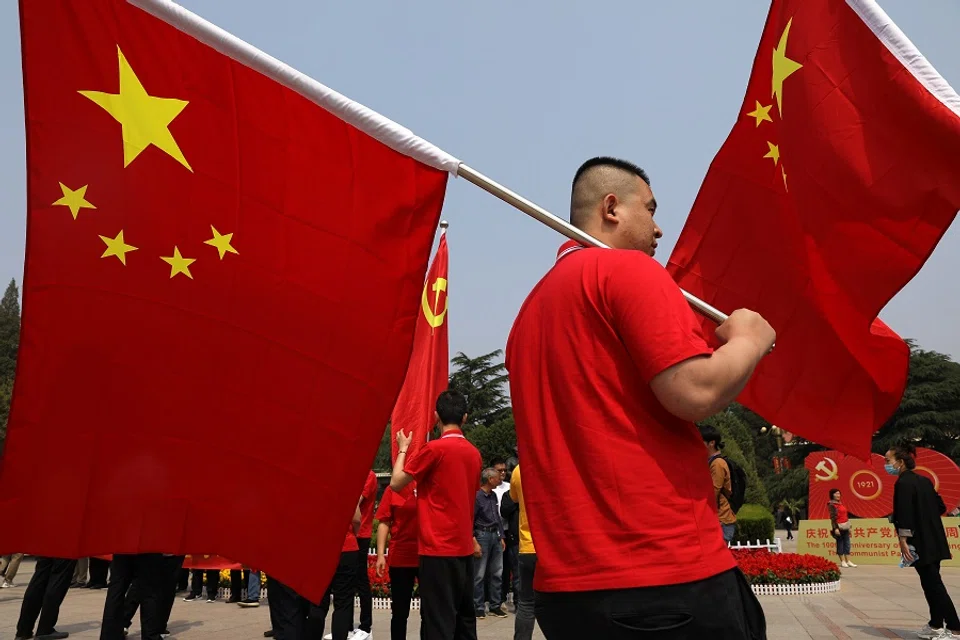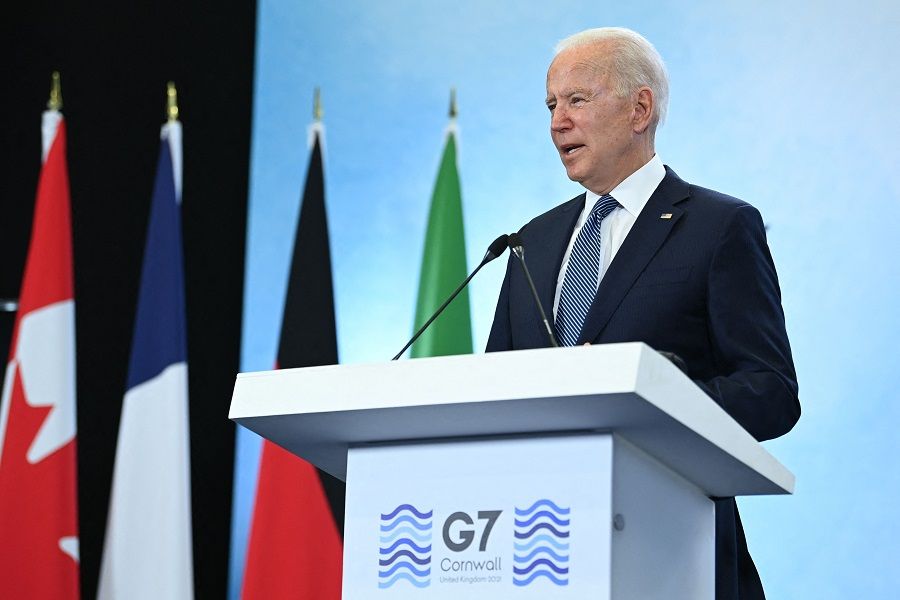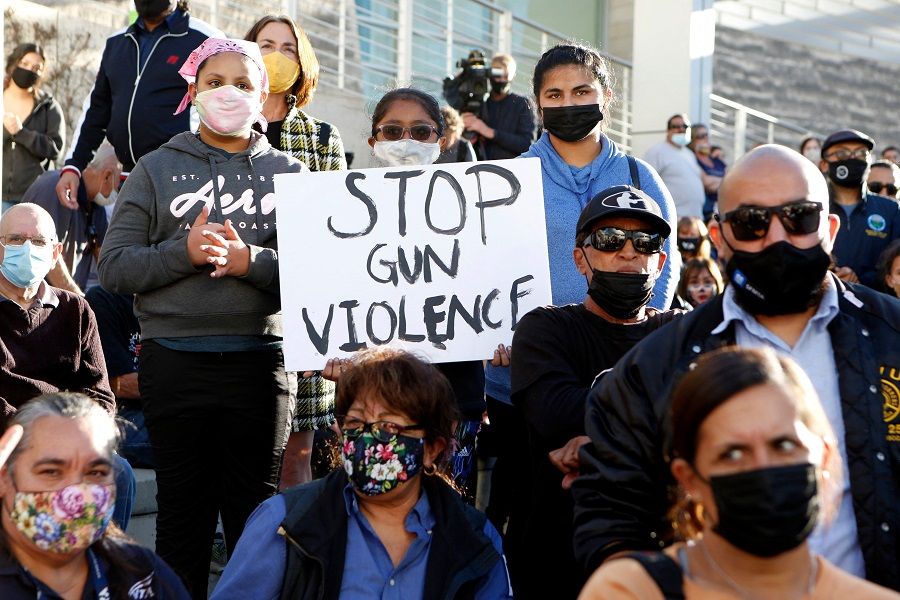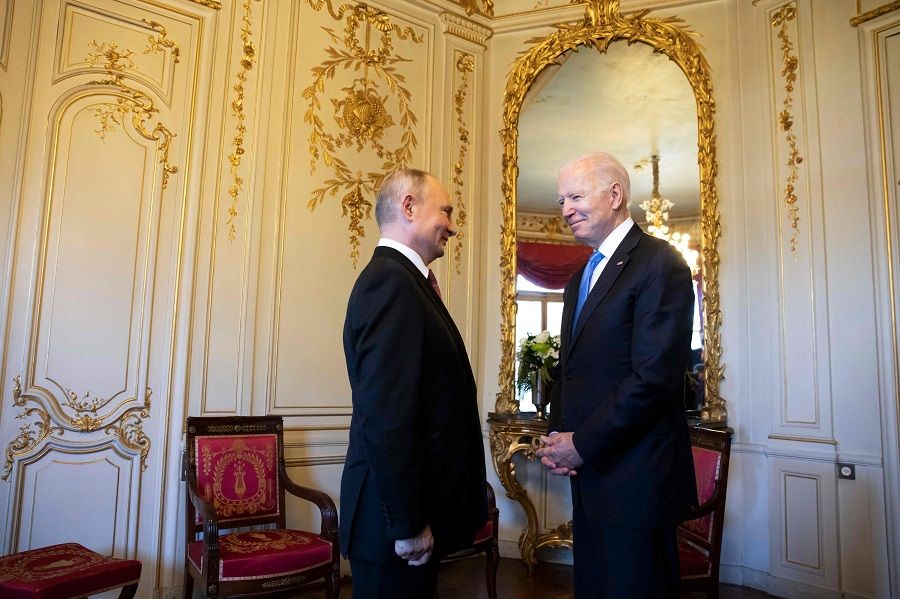China everything: Where has America's confidence gone?

Six months into his presidency, Joe Biden's China policy has taken shape. As Secretary of State Antony Blinken put it, the Biden administration's approach to China will be "competitive when it should be, collaborative when it can be, and adversarial when it must be". In other words, US-China relations will be characterised by three Cs - competition, cooperation, and confrontation. By all indications, the incentive for cooperation seems weak now, and the boundary between competition and confrontation appears blurred.
Biden has inherited much of his predecessor's policy toward China. Some would call it "Trump 2.0" with a few adjustments. His biggest adjustment so far is ditching Trump's going-it-alone approach. In its place, Biden has worked hard to secure support from US allies and partners to counter China's rise multilaterally. Competition with China has dominated his agendas when meeting with foreign leaders from Japan and South Korea to G7 and NATO.
US foreign policy will continue to be shaped by the powerful military-industrial complex, which needs an enemy, real or imagined, to justify the colossal Pentagon budget, already larger than the next ten militaries combined.
Seeing China as an existential threat
Like its predecessor, the Biden administration has convinced itself that China is an existential threat to US national interests and therefore must be pushed back at all costs. Different from Trump, Biden has reintroduced values to US foreign policy. He portrays China as a menace to the "free world", not just to America. He is projecting himself as a president who is tougher than Trump and takes a more rational and "rules-based" approach.
However, even if Biden wanted to repair US-China relations, his hands are tied by domestic politics, since the attitudes of both US Congress and the American public have turned more negative toward China in recent years. Furthermore, US foreign policy will continue to be shaped by the powerful military-industrial complex, which needs an enemy, real or imagined, to justify the colossal Pentagon budget, already larger than the next ten militaries combined.

The US Senate passed, by a vote of 68 to 32, on 8 June 2021, the United States Innovation and Competitiveness Act - a 2,400-page, US$250 billion bill designed to boost US competitiveness against China in the economic, technological, and military dimensions. Many of the 32 senators reportedly voted against the Act because they believed it was not strong enough against China. Unsurprisingly, Beijing swiftly condemned the bill as "full of Cold War mentality and ideological prejudice".
The Biden administration parroted Mike Pompeo's parting shot, calling what happens in Xinjiang "genocide". The Xinjiang situation remains controversial, with the two sides painting sharply different pictures. China has to be more transparent and receptive to external criticisms, while the Biden administration needs to approach the issue objectively and holistically. In this age of misinformation, it is very hard for the two countries to reach a common understanding, especially when they barely talk to each other.
Hong Kong's pro-democracy movement has continued to dwindle after the national security law was enacted in June 2020, and most recently, Apple Daily, the Hong Kong newspaper highly critical of Beijing, was shut down. In the South China Sea and the Taiwan Strait, US warships frequently visit in the name of "freedom of navigation", while PLA airplanes fly near Taiwan on a daily basis. Differences over Xinjiang and Hong Kong and tensions in the Taiwan Strait and the South China Sea have overshadowed common interests between the two powers.
It is perplexing why the two sides have not picked some "low-hanging fruits" - for the US to resume the Fulbright and Peace Corps programmes in China, and for both to welcome journalists back and reopen their consulates in Houston and Chengdu respectively, for example.

A rising power like China naturally poses challenges to the reigning hegemon. China is not only poised to take over the US as the largest economy, it is also quickly modernising its military and aiming to become a technological powerhouse. The Belt and Road Initiative demonstrates China's global ambitions. From the US perspective, China apparently fits the descriptions of a peer rival. But does China really have the capability and intention to unseat America's global leadership?
The US may be overestimating China
Some Americans worry that the US is going to lose its top spot in international affairs. This may be misleading since it underestimates America's staying power as the most advanced and innovative nation despite its relative decline. It also overestimates the power and intention of other countries, particularly China, to replace the US dominance.
China's economy may be catching up, but its per capita GDP is still only about one-sixth of the US level. And China faces tremendous domestic challenges, from demographics to uneven development. As Kishore Mahbubani remarked in his new book Has China Won?, while Chinese leaders want to rejuvenate the Chinese civilisation, they have no missionary impulse to take over the world and make everyone Chinese.
Following the mob attack on the US Capitol on 6 January 2021, CBS News conducted a poll asking Americans whether US democracy is under threat. 71% of Americans surveyed said American democracy is threatened now. And who or what is the biggest threat to the American way of life? 54% of Americans surveyed said it is other Americans. 20% said it is economic forces, 17% said it is natural disasters and viruses, and only 8% Americans believe that such a threat comes from foreign countries.
It is paradoxical that some Americans think China's non-democratic, one-party state lacks legitimacy and will not last long, and yet they feel threatened by China. Where is their confidence?
Domestic problems most pressing
Indeed, the biggest threat to American society comes from within. Dilapidated infrastructure, poor public education, broken health care, rampant gun violence, protracted ethnic tensions, and rising racism are some of America's most serious challenges, and they are clearly not caused by China or any other foreign country.

Many politicians seem indifferent to real problems in America. For example, over 300 mass shootings took place and about 10,000 Americans were killed in gun violence during the first half of 2021 alone, according to Gun Violence Archive, a non-profit organisation in Washington, DC. Many members of US Congress are not addressing critical issues such as gun violence; instead, they are busy passing bill after bill to counter the perceived "China threat". And what have they done to boost American public education and health care or to tackle climate change and illegal immigration? It is tempting for politicians to scapegoat others when they fail to solve problems.
It is paradoxical that some Americans think China's non-democratic, one-party state lacks legitimacy and will not last long, and yet they feel threatened by China. Where is their confidence? It is also ironic that some people in both China and the US exaggerate the Chinese power, leading to inflated Chinese confidence and assertiveness and unwarranted American insecurity and panic about China.
Simple dichotomies inadequate for today's world
Senator Bernie Sanders remarked in a recent Foreign Affairs article, the unprecedented global challenges that the US faces today - climate change, pandemics, nuclear proliferation, massive economic inequality, terrorism, corruption, authoritarianism - are shared global challenges. They cannot be solved by any one country acting alone. They require increased international cooperation - including with China.
Americans tend to view the world through a simple dichotomy of democracy vs autocracy. The Chinese are more results-oriented and focus on the meritocracy of their leaders. In their view, competition between the two countries is not about ideologies but about governance.

Biden declared that China would not be the most powerful country on his watch. He has attempted to woo Putin's support in dealing with China - a strategy apparently borrowed from China, i.e., to form a united front with your lesser enemy to combat the major one.
Interestingly, as Biden was busy rallying support to counter China when attending the G7 and NATO summits in June, China sent three astronauts to work in its new space station. It's quite telling that no matter what others say or do, China will move onwards and upwards.
Americans tend to view the world through a simple dichotomy of democracy vs autocracy. The Chinese are more results-oriented and focus on the meritocracy of their leaders. In their view, competition between the two countries is not about ideologies but about governance. As some Americans become disillusioned about their future and paranoid about China, nationalism is soaring among many Chinese, who believe the West is not qualified to lecture China any more. With a belligerent Washington and a nationalistic Beijing, one may have to lower expectations about the already troubled US-China relationship.
Related: Biden's impressive 'three-in-one' policy to deal with China | Strategic Competition Act: The US targeting China through Cold War politics? | While the US sets new goals for G7, China sets new goals for itself | Internal conflicts will be the downfall of the US | Will the US be left out of China's space station projects?
